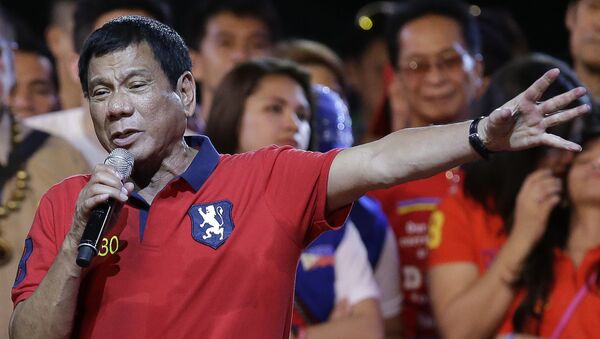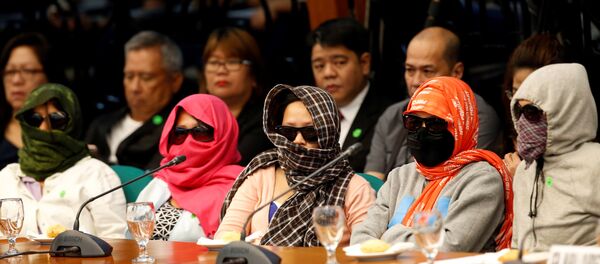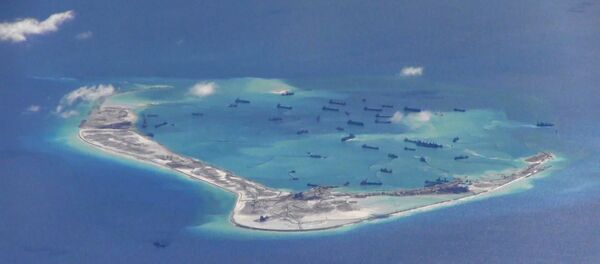Radio Sputnik’s Loud & Clear spoke with Bernadette Ellorin, chairperson of BAYAN-USA, about the complicated history of peace talks in Manila and the potential for this round of talks to end successfully.
Ellorin offered that the National Democratic movement in the Philippines is "very optimistic that the peace process is pushing forward, and we are of course grateful that the political prisoners, some of which have already been released, will participate in peace talks as consultants. It’s a very hopeful time, but a lot needs to be proven in practice, the Filipino government has a lot to prove, in regards to the past agreement from the peace talks, and marching forward sincerely with the peace process"
Loud & Clear host Brian Becker asked, "What’s the history of the peace talks between both sides? What happened to the peace talks in the past? What reasons contributed to the war continuing?"
"The preliminary peace talks began between the two parties; the government of the Philippines and the National Democratic Front of the Philippines, back in the late 1980s," she said, "after the fall of the Marcos dictatorship. Those talks failed after the Mendiola massacre, where the military was ordered to open fire on peasants who were protesting for land reform in the gates of the palace back in the late 90s."
She added that the Filipino government’s participation in the US War on Terror, and the labeling of the New People’s Army as a terrorist group, also contributed to the deterioration of talks. She said this categorization is counter to the experience Filipino’s have with the NPA.
"… from the point of view of the most impoverished Filipinos in the rural areas and especially the countryside, the New People’s Army is not just an army, it is also a social service organization."
Ellorin described the NPA’s relationship with poor Filipinos saying, "In the areas of the Philippines where the government doesn’t provide services, the New People’s Army is there to provide those services." She added, "They are there as medics, they are there as teachers…they are also cultural workers. In many cases when you go to the far flung regions where the New People’s Army is present, the people celebrate them, they don’t see them as terrorist forces whatsoever. And the reason why they’re able to see them that way is because the people are suffering an intense socio-economic crisis."
Becker asked if the Philippines should expect interference from the US in their peace talks.
"Absolutely," she asserted. "The mere fact that the US renewed its terrorist listing of the CPP and the NPA is a measure of their attempts to frustrate the peace process. And it must be known that the Philippines is still a US neo-colony and a bastion of US foreign policy in the region. So the US has every interest to sustain its position as the neocolonial master. And the peace process, as manifested by the peace negotiations, is a threat to that."






